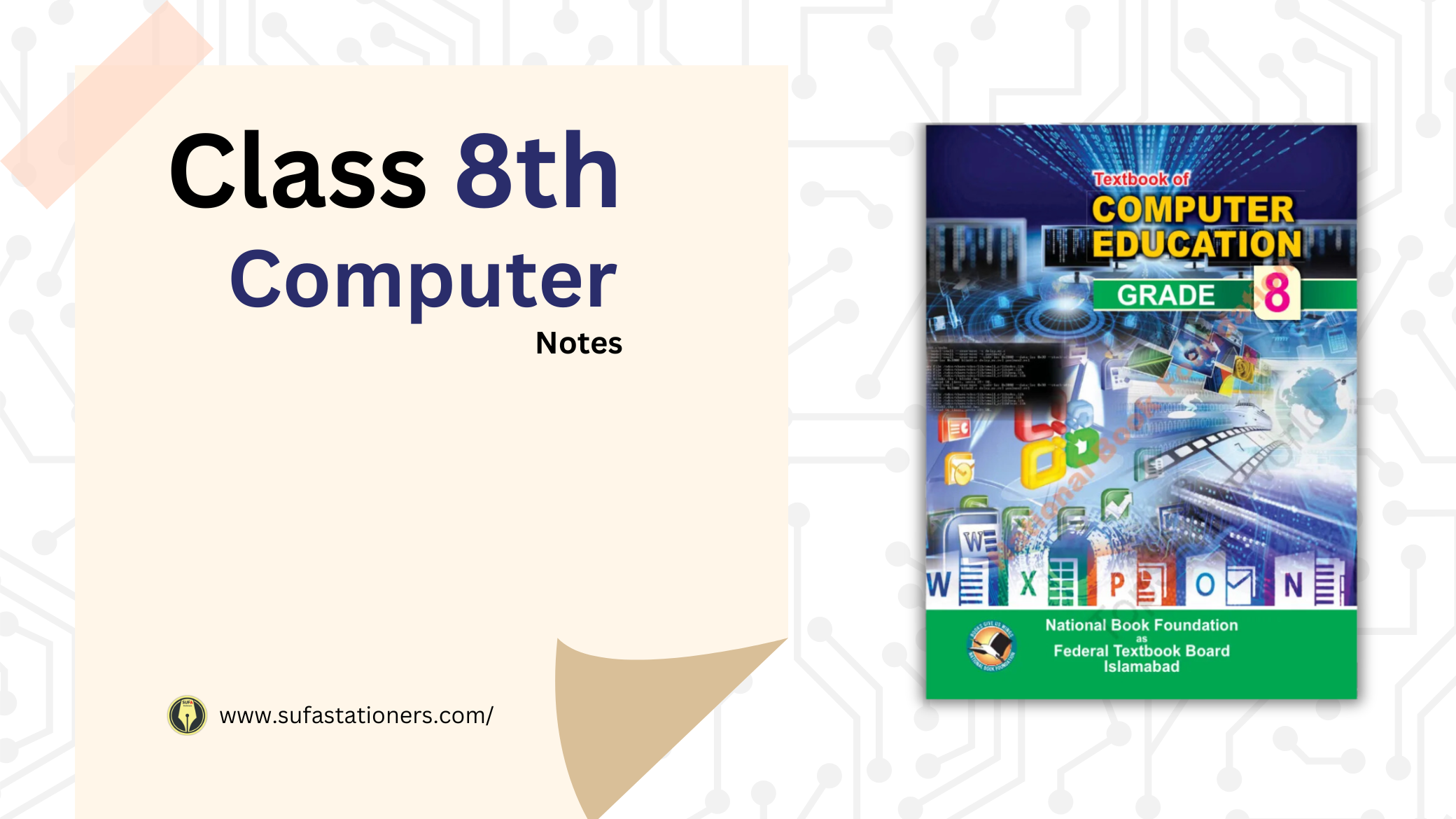Class 8th Computer Notes | Unit No: 1
In today’s technology-driven world, the foundation of computer knowledge starts early, and by the time students reach class 8, they are introduced to fundamental concepts that shape their understanding of modern technology. Chapter 1 of Class 8 Computer notes focuses on ICT Fundamentals, a crucial topic that explores emerging technologies and how they influence various aspects of life, business, and education.
In this article, we’ll delve into the key concepts of Chapter 1: ICT Fundamentals, and provide class 8 computer notes in a simple and digestible manner. Whether you’re a student, parent, or teacher, these grade 8 computer chapter 1 notes will help you understand the basics of ICT and its applications in real-world scenarios.
Class 8 Computer notes Chapter 1: ICT Fundamentals
Chapter 1 introduces students to Information and Communication Technology (ICT) and its importance in today’s world. This chapter covers a wide array of topics including emerging technologies, the Internet of Things (IoT), embedded systems, edge computing, data analytics, and much more.
The importance of these technologies in business, education, and day-to-day life cannot be overstated. Understanding these concepts lays the groundwork for future chapters that dive deeper into complex areas like artificial intelligence, robotics, and computer networking.
Key Concepts in Chapter 1
1. Emerging Technologies
Emerging technologies are new innovations that are making significant changes in how we live, work, and communicate. These technologies include Artificial Intelligence (AI), 5G technology, Blockchain, and Virtual Reality (VR). They impact sectors like business, education, healthcare, and entertainment by improving efficiency and creating new opportunities.
2. Internet of Things (IoT)
The IoT refers to the network of physical devices that are connected via the internet. These devices are embedded with sensors and software, enabling them to collect and exchange data without human intervention. Examples include smart home appliances, connected vehicles, and wearable health devices. The IoT is revolutionizing industries by providing real-time data and automation capabilities.
3. Embedded Systems
An embedded system is a dedicated computer system that is designed to perform specific tasks. These systems are found in devices like smartphones, cars, medical equipment, and home appliances. Understanding embedded systems is critical for students, as they form the backbone of modern technological devices.
4. Edge Computing
Edge computing refers to the processing of data near the source, rather than relying on centralized cloud systems. This reduces latency and allows for faster data processing, which is particularly useful in applications like smart cities and traffic management systems.
Importance of ICT in Business and Education
One of the key focus areas of Class 8 Computer Science is understanding how ICT transforms industries. In business, ICT is used to improve productivity, communication, and decision-making. For example, data analytics allows companies to analyze large datasets to make informed decisions. Similarly, in education, ICT provides tools that enhance the learning experience, such as online classrooms, interactive learning apps, and educational software.
Class 8 Computer Notes
Applications of ICT in Real Life
1. Artificial Intelligence (AI)
AI is an integral part of modern technology and is used to solve complex problems that require human intelligence. Examples include voice recognition systems, self-driving cars, and automated customer service.
2. Robotics
Robotics is another application of ICT that automates processes, especially in manufacturing industries. Robots can perform tasks traditionally carried out by humans, such as assembling products, packing, and even medical surgeries.
3. 5G Technology
The 5G network provides faster internet speeds, improved connectivity, and supports a larger number of connected devices. This technology is essential for modern communication systems and is the backbone of the IoT.
Enhanced Learning
To further assist students in their studies, we recommend referring to other subjects and topics related to ICT that are covered in class 8. For example, understanding computer fundamentals will also help in grasping mathematical concepts. You can check out our detailed 8th class maths notes to see how technology is used in solving mathematical problems. Similarly, you can explore how history and ICT are intertwined by referring to our Class 8 History Notes.
Preparing for Exams
Students preparing for their exams can make the most of these class 8 computer notes by regularly reviewing key concepts and definitions. Practice is essential, so working on questions and answers related to ICT fundamentals is highly recommended. For example, students should be able to explain the role of embedded systems in everyday devices or discuss how edge computing can improve traffic management.
To ensure you are thoroughly prepared, make use of both written notes and practical applications of the concepts. Understanding how ICT is applied in real life will make it easier to retain the information and excel in exams.
Conclusion
Understanding the basics of ICT fundamentals is crucial for students in class 8. With the rapid development of technology, these concepts form the foundation for future learning and career opportunities. By covering topics such as IoT, AI, 5G technology, and edge computing, this chapter provides a comprehensive overview of how technology is shaping our world.
These Grade 8 Computer Chapter 1 Notes aim to make learning easy and effective, helping students stay ahead in their studies. For more resources, don’t forget to check out our 8th class maths notes and class 8 history notes.
With consistent study and understanding, mastering ICT fundamentals will not only help in exams but will also provide valuable insights into the technology that shapes our future.







